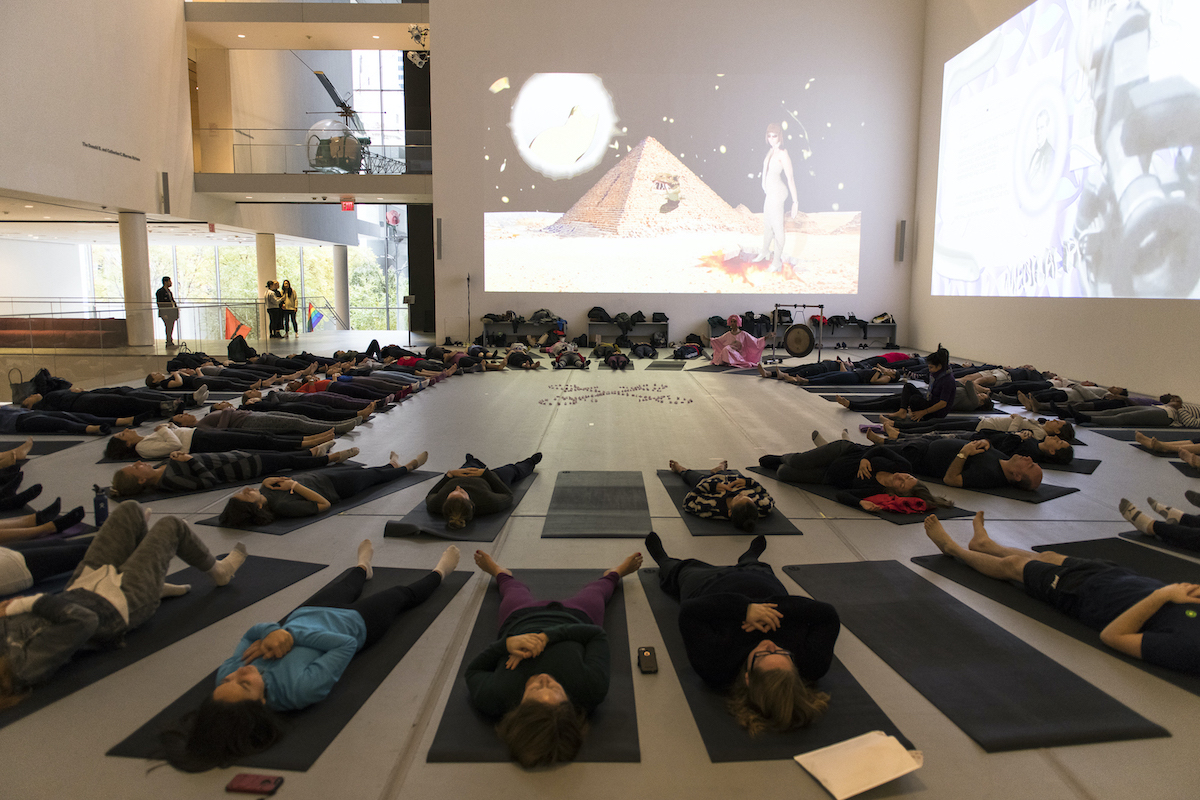
The lecture traces repairative workshop, body and performance practices in the field of art and diaspora. It focuses on how therapeutic body workshop techniques on the un-learning and transformation of racial violence and trauma in the late 1960ies and today had been transformed into public art performances. Developed as bodywork and micropolitical tools in the field of art, the protected space of the workshop is brought to public as performance, film and documentary.
In a historical critique, we analyze Anna Halprin’s iconic workshop series for Ceremony of Us (1969), created as a political performance project for the catharsis and healing of racial violence and trauma in response to the so-called Watts riots in Los Angeles (1965). This work will be juxtaposed with the contemporary project Merkabah for the Hoetep (since 2016) by Tabita Rezaire, as a “collective healing offering” and a somatic, mental, and spiritual way of mending. Both artists assume that violence and trauma caused by experiences of racism have inscribed themselves in the body and sedimented as corporeal archives in all intersectional dimensions of discrimination.
Elke Gaugele is a cultural anthropologist and Professor for Fashion, Styles and Contextual Design at the Academy of Fine Arts Vienna. Her research specializes in the field of design, art and global migration as well as in postcolonial and feminist intersectional (fashion) theory.
Mona Schieren is a Professor of Transcultural Art Histories at the University of the Arts, Bremen. Topics of her current research of transcultural studies in modern and contemporary art include fiber art, history and theory of body practices/technologies as well as history politics and trauma theory.
Elke and Mona are members of the DFG research network Entangled histories of Art and Migration: Forms, Visibilities, Agents and AG Kunstproduktion und Kunsttheorie im Zeichen Globaler Migration (Ulmer Verein).